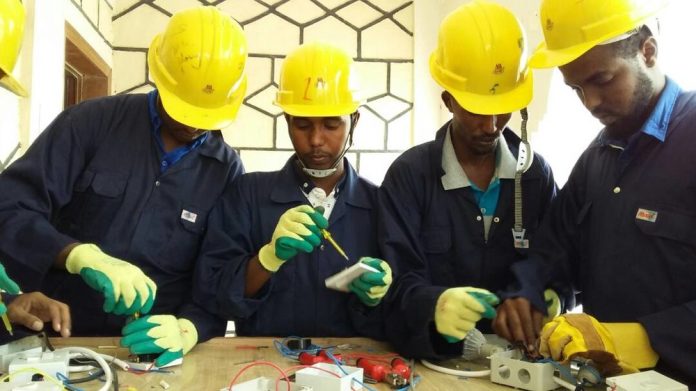
In today’s competitive job market, employers value candidates with practical skills in addition to academic qualifications. By acquiring skills alongside formal education, Nigerian students can improve their chances of finding employment and standing out from other applicants.
There are some diverse sets of skills for professional success which can be learnt alongside formal education. These include: Programming, Accounting, Project Management, Communication, Leadership, Web designing, Basic computer repair and Networking, Fashion designing etc. These skills can also put extra cash in your pocket as a student while you are still pursuing your formal education.
Moreover, the goal of an average student should be ability to complement skill acquisition and formal education. Utilizing formal education to acquire a foundation of knowledge is vital, and skill acquisition helps to take it one step further by lending a practical outlook to what was learned in the classroom. The two complement each other and create a winning career combination – traditional education provides a structured approach, and skill acquisition enables a more practical and hands-on approach to learning.
Acquiring skills beyond the classroom can foster personal growth and self-confidence. It helps students develop important attributes such as problem-solving, communication, teamwork, and adaptability. These skills are valuable not only in the workplace but also in various aspects of life, enabling students to navigate challenges and succeed in their chosen careers. It provides them with a well-rounded education that combines theoretical knowledge with practical skills, ultimately increasing their employability and future prospects.
Similarly, skill acquisition can empower students to start their own businesses or engage in freelance work. It enables them to develop practical skills that can be translated into income-generating ventures, contributing to economic growth and self-reliance. Skill acquisition outside of formal education can also be a great way to network and build connections with others who share similar interests. Plus, the skills gained can often be put to use in creative or entrepreneurial endeavors.
Acquiring new skills can lead to increased earning potential and opportunities for career advancement. And of course, in the age of the internet, there are more ways than ever to gain new skills, whether through online courses, workshops, or mentorships.
The rise of the “gig economy” and freelancing has opened up new opportunities for people with specialized skills. And platforms like YouTube and Skillshare have made it easier than ever to learn new things online. Although the gig economy is still in its early stages, it has already made a substantial impact on the future of work. It is transforming our perceptions of jobs, careers, and the workplace. As the gig economy continues to grow, its influence on the way we work is expected to further intensify. Freelancers and gig workers have become an integral part of the workforce, offering companies flexibility and a wider range of talent.
While formal education provides theoretical knowledge, skill acquisition offers hands-on experience. It allows students to apply what they have learned in real-world scenarios, bridging the gap between theory and practice. And it makes sense that some people might use the income from their skills to pay for formal education. It’s almost like a “bootstrapping” approach to education, where people are able to leverage their skills to pay for more traditional forms of education. It is certainly an exciting time for education, with so many new possibilities and approaches. I think the future will bring even more options for people to learn and grow in ways that suit their individual needs and interest. Acquiring new skills requires dedication, time and resources. Dedicate time each day for skill acquisition, take online courses, attend conferences and workshops, and stay abreast of the latest trends in your industry. Start with something small, practice to gain proficiency, and then move on to more complex knowledge.
Finally, it is important to know that lifelong learning is essential for personal and professional growth. Continuously staying in touch with new knowledge helps you to remain relevant in the ever-changing world of work. It also opens up new opportunities for career advancement, valuable networking connections and cultivates a growth mindset.
Sumayyah Akale is a student of the Department of Mass Communication, ABU Zaria.
Views expressed by contributors are strictly personal and not of Precision Online Newspaper.















